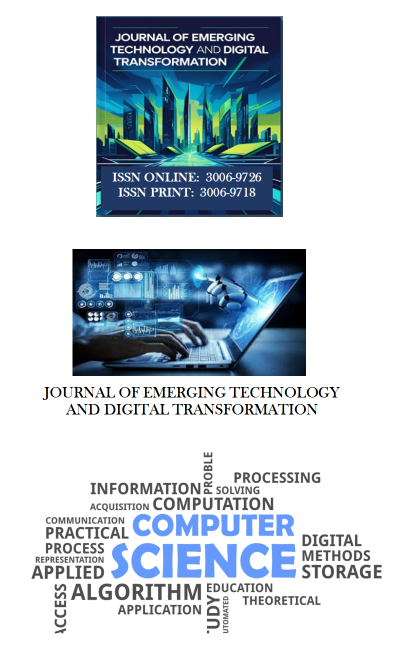EDGE COMPUTING ADOPTION AND ITS EFFECT ON IOT SYSTEM PERFORMANCE IN PAKISTAN: MEDIATING ROLE OF LATENCY REDUCTION AND MODERATING ROLE OF NETWORK SCALABILITY
Abstract
The fast development of the Internet of Things (IoT) has imposed a tremendous stress with regard to latency, reliability and scalability especially in third-world countries like Pakistan. This paper has analyzed how the application of edge computing to the IoT systems influence its performance, where latency decrease is a mediator, and network scalability is a moderator. The research design was quantitative and the data was gathered by targeting professionals working in telecommunications, smart manufacturing, transport, and ICT infrastructure fields in key cities of Pakistan, i.e. Karachi, Lahore and Islamabad. There were a total of 220 valid responses of IT professionals, IoT system architects, cloud and edge engineers, and project managers having pertinent area experience. Partial Least Squares Structural Equation Modeling (PLS-SEM) was applied with SmartPLS. The model results indicated an important positive effect of edge computing adoption on performance of IoT system, which means that local data processing had a positive effect on the speed of responses, the efficiency of the system, and its reliability. The partial mediation of this relationship indicated that the decrease in latency was one of the main ways in which the introduction of edge computing contributed to a better performance as it reduced the time delays in data transmission. The moderating analysis also suggested that the positive impact of edge computing on performance of IoT systems was enhanced in the higher network scalability contexts, which points to the significance of scalable infrastructure on maximizing the benefit of edge computing application. This research added value to both the academics and practice because it offered empirical data on the impact of technological improvements in terms of edge-based computing to enhance the performance of smart systems in developing countries.
Keywords: Edge Computing, IoT System Performance, Latency Reduction, Network Scalability, Pakistan.












